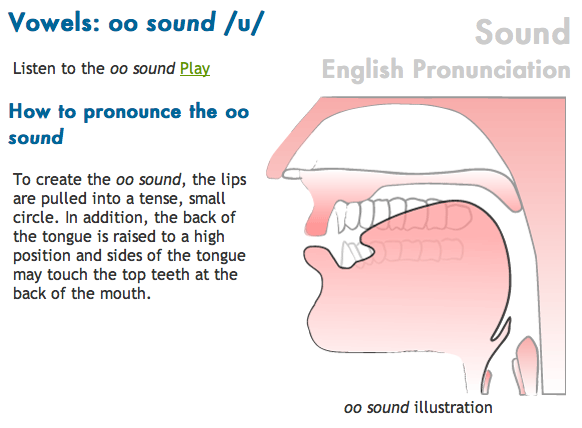“Oo” vs. “W” – Especially for my Japanese students!
This topic is one that doesn’t seem to be a problem for some people when learning English, but I’ve seen that it can be especially difficult for Japanese learners. Because most Japanese learn with カタカナ(katakana), some of the sounds are not exactly right.
For example,
ウ is the English sound for “oo,” as in “blue,” “chew,” or “do.”
Unfortunately, sometimes theウ sound is also understood to be the “w” sound as in “would” or “winter.” Actually. these “w” sounds do not exist in the Japanese language. It will take some extra training to learn how to move your mouth to pronounce this sound. You can do it!
Above is a picture of pronouncing “ウ” or “oo,” that most of you know how to do. Simply make a small circle with your lips when you are pronouncing the sound (find the full lesson here).
This picture, however, is more difficult to do. Try to focus on closing your lips a little more, and bringing them in closer to your teeth. Also, the “w” sound is not a whole syllable like the “ウ” sound, it is only the first part of a longer sound. So, say it quickly.
Try to pronounce these words without using the “ウ” sound:
Winter.
Weather.
Where.
Win.
Sweet.
Rewind.
When.
Why.
While.
Did it sound different from the “ウ” sound? If not, try again and listen to the lesson here. Keep trying until you get the sound you want, practice makes a better English speaker!
“Oo” vs. “W” – Especially for my Japanese students!



